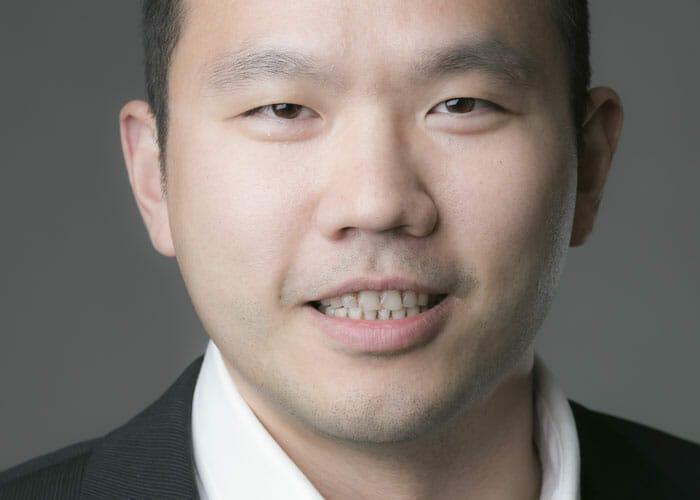Is relying on a hunch a good strategy for investing? It is unlikely a serious investor would answer yes. But if I replace “hunch” with “expert intuition” it becomes a more interesting question.
So what is intuition? The most widely accepted definition comes from economist Herbert Simon: “The situation has provided a cue; this cue has given the expert access to information stored in memory, and the information provides the answer. Intuition is nothing more and nothing less than recognition.” In other words, intuition is simply pattern matching. In principle, this process is no different than how kids recognise that an animal is a dog not a cat. “Expert intuition” is acquired and applied in professional fields – playing chess or firefighting for example.
Intuition is part of a form of knowledge known as tacit knowledge. We, as human beings, know more than we can tell. Even the experts aren’t able to articulate their intuitions, let alone justify them. It happens effortlessly. It feels automatic.
If that sounds familiar, you have probably come across Daniel Kahneman, a Nobel Prize-winning psychologist, and his work on system 1 vs 2 thinking. In short, system 1 is heuristic thinking – a fast, autonomous and unconscious way of thinking. System 2 is reasoned thinking – a slower, harder and controlled way of thinking that normally kicks in when a person is faced with complex problems. In this context, intuition is a system 1 tool.
There is strong evidence to support the assertion that the intuitive judgements of some professionals are impressive. On the other hand, Kahneman tells us that system 1 thinking is prone to cognitive biases. It cannot be trusted all the time.
So can we trust expert intuition with making investment decisions?
It turns out that for intuition to be genuinely skilled, Kahneman and Gary Klein say, there are two necessary conditions.
First, there must be adequate opportunity to build up the expertise. The 10,000-hour rule might apply here. Assuming 40 hours a week and 45 weeks a year, that’s less than six years’ experience. This seems like an easy hurdle for investment professionals.
Second, and more importantly, the environment in which the expertise is acquired needs to be sufficiently regular to be predictable. The ideal situation is that the feedback is immediate and unambiguous. Think learning to apply brakes when driving around a bend. Intuition can also be acquired in the presence of uncertainty but the key condition is that the environment (underlying probability distribution) needs to be stable. Think poker: the exact chance of winning with any given hand is always the same, despite the uncertain outcome of each game.
Unfortunately, the feedback we receive from financial markets is not immediate and is far from unambiguous. There are a couple of reasons to believe intuition gained in this environment is probably spurious.
First, cause-effect linkages are weak in a high-noise environment such as investment markets. Nonetheless, Kahneman’s research suggests human minds are strongly biased toward casual explanations. We refuse to accept that we simply cannot explain why certain events happen. We come up with false explanations to satisfy our craving for coherence and reason. If sharemarkets went up by 3 per cent, fundamentals must be improving. If rising markets suggest that fundamentals are improving, we ought to buy more! Clearly, this buying-high strategy is doomed to fail.
Second, our financial education gives us a false impression that we operate in an environment where reliable intuition can be acquired – a stable underlying probability distribution. In reality, financial markets often behave for a prolonged period of time as if they resemble a stable environment, until regime shift brings out abrupt systematic changes. This leads to a false confidence that genuine expert intuition can be learnt.
System 1 is always on – it cannot be turned off. Through years of experience, it will pick up something. I would argue that, in the environment of financial markets, it is more likely to pick up unreliable hunches and cognitive biases than valid intuition.
Is it all bad news? Of course not. I can offer at least two positive observations.
Decisions facing leaders in the investment industry are much broader than how to position a portfolio for an uncertain and unpredictable future. There are numerous decisions in the area of managing the investment business and operations, along with the investment talent. Arguably, the environment for these types of decisions is more benign for developing reliable intuition.
Then there is another type of intuition in my mind. It is about the ability to assess the environment and determine when and whether to stop relying on intuition. The acquisition of this type of intuition comes through attention, effort and rigorous analysis – all signatures of system 2 thinking. But through practice, it becomes fast and almost automatic, like a system 1 intuition. Warren Buffett’s famous remark, “Be fearful when others are greedy and greedy when others are fearful” is a great example. I believe this type of intuition is worth pursuing.
Liang Yin is a senior investment consultant in the Thinking Ahead Group, an independent research team at Willis Towers Watson and executive to the Thinking Ahead Institute.



